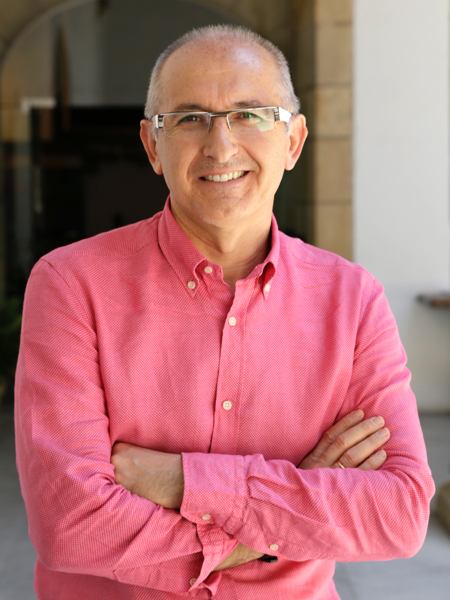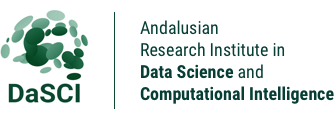Enrique Herrera Viedma

Highly Cited Researcher at years 2015, 2016, 2017, 2018, 2019 and 2020
He was born in Jódar (Jaén) in 1969. He has been a Professor of Computer Science and Artificial Intelligence since 2007 and has been teaching at the Faculty of Communication and Documentation and at the E.T.S. of Computer Engineering and Telecommunications at the University of Granada since 1994.
He has been vice-dean of Research in the Faculty of Communication and Documentation, is a member of the research group “Soft Computing and Intelligent Systems”, director of the multidisciplinary research group SECABA Lab, and recently has been elected member of the government team of the International Society IEEE System Man and Cybernetics. He is currently the Vice Chancellor of Research and Transfer at the University of Granada.
He has received the Extraordinary Doctoral Thesis Award 1996, twice the Award for Excellence in Work from the University of Granada, and the Social Council Award for Young Researchers 2005. His research focuses on topics such as Computational Intelligence, digital libraries, web quality assessment, Web 2.0, information retrieval on the Internet, recommendation systems, fuzzy logic, word computing, group and multi-criteria decision making, Bibliometrics, and data analysis in social networks, in which he has published more than 130 papers in international journals ISI, directed more than 20 research projects and 15 doctoral theses.
He is Associate Editor in a number of international ISI journals such as Information Sciences, Knowledge-Based Systems, Applied Soft Computing, Soft Computing, Fuzzy Optimization and Decision Making, Technological and Economic Development of Economy, Journal of Intelligent & Fuzzy Systems, and IEEE Transactions on System Man and Cybernetics: Systems, and member of the “referees” committee of other ISI journals such as Fuzzy Sets and Systems or Int. Journal of Information Technology and Decision Making.
According to Thomson Reuters’ Web of Science its scientific production has received more than 8000 citations, presenting an H index of 47. According to Google Scholar, the figures amount to 27756 citations with an H index of 81. In any case, it is the second most cited Spanish researcher in the area of Computer Science and Artificial Intelligence. In 2013 he published an analysis in the prestigious journal Science on the new role of libraries in the Information Society; and in 2014 he was identified by Thomson Reuters as one of the Highly Cited and most influential Scientists in his field, currently presenting more than 20 highly cited papers according to Thomson Reuters.





